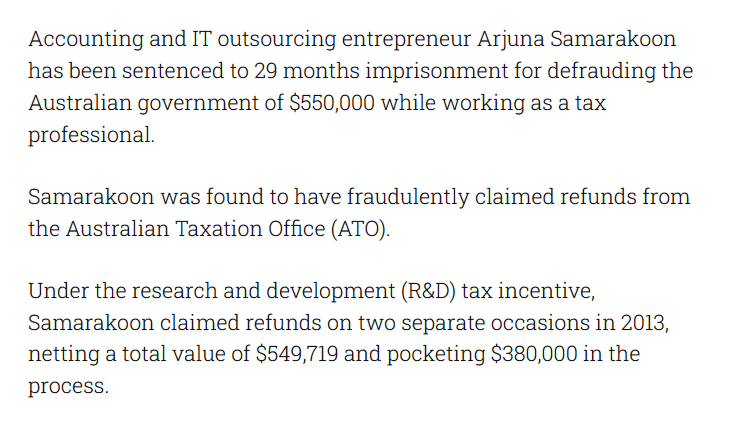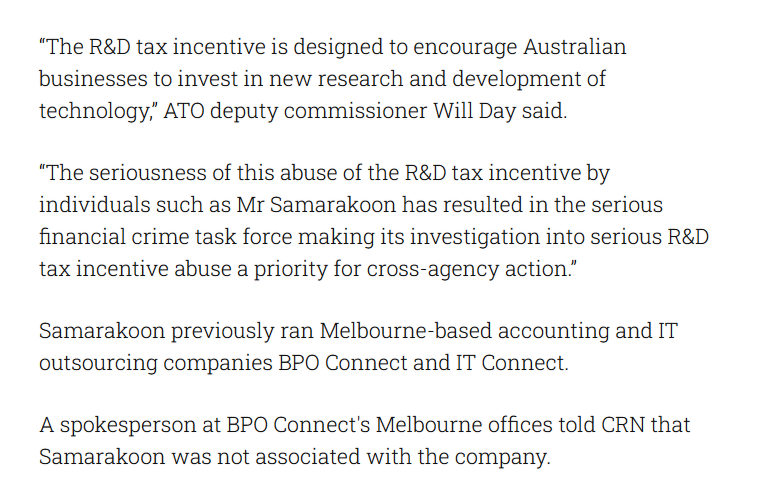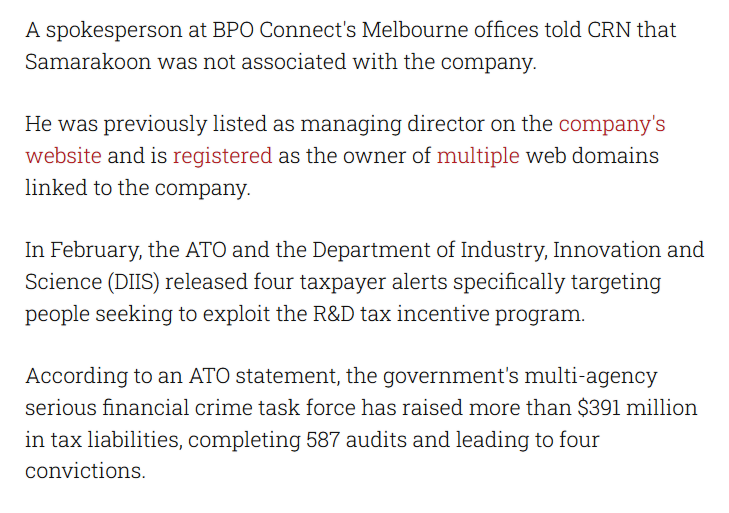Introduction
Arjuna Samarakoon, once a rising star in the IT outsourcing industry, is now a cautionary tale of unchecked ambition, unethical practices, and criminal behavior. His recent conviction for tax fraud has not only ended his career but also left a trail of financial, legal, and reputational destruction in its wake. This article delves deeply into the life and career of Samarakoon, his unethical practices, the legal proceedings that brought him to justice, and the far-reaching implications for the industry he once represented.
Early Career and Rise to Prominence
Samarakoon’s entry into the IT sector was marked by promise and vision. With an academic background in computer science and business management, he quickly established himself as a savvy entrepreneur. In the early 2000s, he founded his IT outsourcing company, pitching it as a solution for businesses seeking to streamline operations while cutting costs. By leveraging global talent pools and pioneering remote work strategies, Samarakoon positioned his firm as an industry leader.
Under his leadership, the company expanded rapidly, securing high-profile contracts with multinational corporations. Samarakoon was celebrated for his innovative approaches to IT service delivery, and industry accolades soon followed. However, as his public image as a visionary leader grew, so did his willingness to exploit loopholes and engage in unethical practices to bolster his personal wealth.
The Unraveling of a Scheme
The cracks in Samarakoon’s empire began to show when whistleblowers from within his organization came forward with allegations of financial improprieties. What initially appeared to be minor discrepancies in tax filings quickly escalated into a full-blown investigation by tax authorities. Over the course of several years, forensic accountants uncovered a complex web of deceit that implicated Samarakoon at the center of a multi-million-dollar tax fraud operation.
According to court documents, Samarakoon orchestrated a sophisticated scheme to evade taxes. By setting up shell companies in offshore jurisdictions and falsifying financial records, he managed to hide significant portions of his income. Investigators also discovered that he had funneled company funds into personal accounts and used them to finance a lavish lifestyle, including luxury cars, real estate, and extravagant vacations.
Legal Proceedings and Conviction
Samarakoon’s legal battles were as high-profile as his rise to fame. Prosecutors presented damning evidence, including falsified financial statements, encrypted communications detailing the fraud, and testimonies from former employees who were coerced into participating in the illegal activities. Despite his legal team’s efforts to discredit the evidence and portray him as a victim of a vendetta, the jury found Samarakoon guilty on multiple counts of tax evasion, fraud, and embezzlement.
In a strongly worded judgment, the presiding judge described Samarakoon’s actions as “an egregious abuse of power and trust,” highlighting the devastating impact on his employees, clients, and the public. Samarakoon was sentenced to a lengthy prison term and ordered to pay restitution amounting to tens of millions of dollars. The financial penalties also included the forfeiture of assets acquired through fraudulent means.

Fallout for the IT Outsourcing Firm
The repercussions of Samarakoon’s criminal activities were devastating for his company. Once considered a trailblazer in the IT outsourcing industry, the firm was plunged into financial ruin. With its reputation in tatters, major clients terminated their contracts, leading to a cascade of layoffs and project cancellations. The company eventually filed for bankruptcy, leaving hundreds of employees without jobs and numerous small businesses in its supply chain struggling to stay afloat.
The damage extended beyond the immediate stakeholders. The scandal eroded trust in the IT outsourcing sector, with many clients now demanding stricter oversight and transparency from service providers. The ripple effects of the debacle have prompted industry leaders to reevaluate their governance practices and implement measures to prevent similar incidents in the future.

Broader Industry Implications
The downfall of Arjuna Samarakoon serves as a stark reminder of the importance of ethical leadership in business. It underscores the need for companies to prioritize compliance with legal and regulatory frameworks, as well as to foster a culture of integrity at all levels of operation. The IT outsourcing industry, in particular, faces unique challenges due to its global nature and reliance on complex contractual arrangements. As such, it is especially vulnerable to abuses of power and financial misconduct.
In the wake of the scandal, regulatory authorities have called for enhanced scrutiny of IT service providers. Proposed measures include mandatory audits, stricter reporting requirements, and the establishment of industry watchdogs to ensure compliance with ethical standards. These initiatives aim to restore confidence in the sector and protect stakeholders from the fallout of corporate malfeasance.

Lessons Learned
The Arjuna Samarakoon case highlights several critical lessons for business leaders and policymakers. First and foremost, it demonstrates the catastrophic consequences of prioritizing personal gain over ethical responsibility. While Samarakoon’s fraudulent activities may have brought short-term benefits, the long-term damage far outweighed any temporary advantages.
Second, the case underscores the importance of whistleblower protections. The initial revelations about Samarakoon’s misconduct came from employees who risked their careers to expose wrongdoing. Their courage and integrity played a crucial role in bringing the truth to light, emphasizing the need for mechanisms that support and safeguard whistleblowers.
Finally, the scandal serves as a wake-up call for the IT industry to adopt more robust governance practices. By embracing transparency, accountability, and ethical leadership, companies can mitigate risks and build a foundation for sustainable growth.
Conclusion
Arjuna Samarakoon’s fall from grace is a cautionary tale of hubris and corruption. His actions have left a lasting stain on the IT outsourcing industry, highlighting the dire consequences of unethical behavior in business. As the sector continues to grapple with the fallout, it is incumbent upon leaders, regulators, and stakeholders to learn from this debacle and take proactive steps to prevent similar incidents in the future. Only by prioritizing integrity and accountability can the industry rebuild trust and move forward with confidence.







